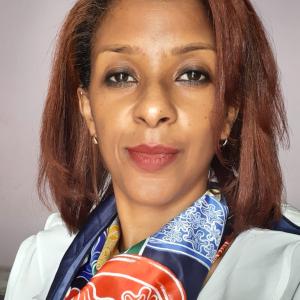Hawassa City, capital of Sidama Region of Ethiopia, is 273 km south of Addis Ababa. The city is a tourist destination and a weekend gateway with sizable young female workers working at textile factories based in the Hawassa Industrial Park.
UN Women’s two studies: “Assessment of Protection from Violence Against Women and Girls in Hawassa” and “Scoping Study for Hawassa Safe City and Safe Public Spaces Programme” show that there is high number of sexual violence against women and girls (SVAWG) cases in the city. This prompted UN Women to pilot a program known as “Safe City and Safe Public Spaces with Women and Girls.”
This UN Women’s flagship programme aims to create safe and empowering public spaces for women and girls free from sexual harassment and other forms of sexual violence through the implementation of evidence based, comprehensive and coordinated prevention and response strategies, including capacity strengthening initiatives in collaboration with local government stakeholders, Civil Society Organizations (CSOs) and faith-based institutions.
Under the leadership of the Hawassa City Administration, an advisory group, constituting 17 government offices, CSOs and faith-based organizations was established to coordinate the SVAWG prevention and response work in the city. This multi-sectoral partnership is envisaged to serve as a platform for implementing different initiatives as well as for enhancing learning, ownership, and accountability.
According to Tesfaye Abebe, Director at Hawassa City Administration and chair of the advisory group, said that the group has brought changes in the overall VAWG prevention and response in the city.
“There is a well-coordinated effort, as 17 organizations came together by signing Memorandum of Understanding and committing to mainstreaming the VAWG in their work,” he added. The programme helped strengthen ongoing individual organization efforts, as it created ownership and better coordination.
“The coordination platform led to better handling of cases, because there are good referral linkages among police, Bureau of Women and Social Affairs, Bureau of the Attorney General, health facilities and safe houses. Cases being handled backdoor involving negotiations with survivors and their families are now significantly reduced. I take this as a success of the project,” Tesfaye noted.
Another success of the Safe City Programme is the engagement of faith-based institutions in preventing and responding to SVAWG in Hawassa City. Faith based institutions in the Ethiopian context are very instrumental, as they have strong presence on the ground and a lot of influence among followers. According to Megabi Haimanot Kesis (Reverend)] Netsanet Akleweg, Deputy Manager of the Sidama Region Diocese at the Ethiopian Orthodox Church, a lot has changed in the 12 churches under the Diocese and its clergy’s teachings when it comes to breaking the taboo in discussing SVAWG in the church. The leaders of the church and members of the Clergy have got membership in the coordination group after receiving the trainings.
“Before we took part in the program, it would have felt strange to talk about the different forms of SVAWG in the church setting. Members were externalizing the issue, as if it was not happening to the church. The feedback was mixed among members of the church. Few didn’t not feel comfortable to hear it, but others were also glad that we have started to talk about this societal issue in the church,” Kesis Netsanet Said.
Kesis Esayas Gebremedhin, Head of Debre Eyesus Church under EOTC in Hawassa, who also participates in the project noted that there was a resistance from clergy members in accepting VAWG. But it was accepted by members of the congregation at all levels.
“After being part of this program, I refused to engage in mediation that was requested mostly by the family of the perpetrator with a view to assisting the aggressor to elude legal consequences. “I say I cannot get involved in this. It must be handled in the court,” Kesis Esayas said.
Ms. Senait Negash, one of the five leaders of the Women’s Ministry at Hiwot Berhan Church in Hawassa, from Evangelical denomination, also noted the project was vital for them to start talking about SVAWG in the church.
“I am glad that now we developed that trust in the congregation that women and girls now have the confidence in coming to us and knowing there is someone that will stand up for them,” she said.
UN Women Ethiopia is implementing a safe city and safe public spaces programme in Addis Ababa and Hawassa as part of UN Women’s Safe Cities and Safe Public Places for Women and Girls Global Flagship Initiative. The programme brought together the city administration, Bureau of Women and Social Affairs, education, transport, justice, health sector, faith-based organizations and civil society organizations. The programme is being implemented in partnership with Norwegian Church Aid (NCA), local faith partners and other stakeholders.
The initiative in Hawassa was supported by the Department for International Development (DFID) in 2019. The implementation of the program continues through the support from UN Women Strategic note donors including Government of Netherlands, Government of Norway, and Government of Sweden as part the broader EVAWG programme.


